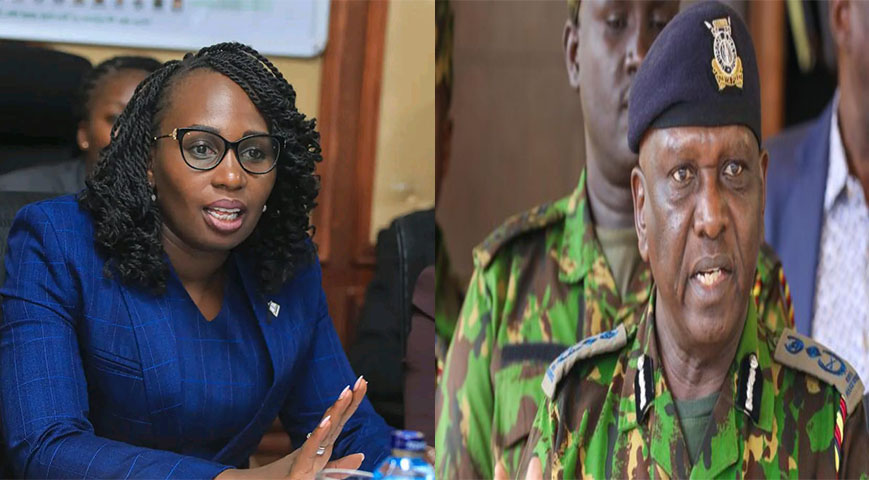The Law Society of Kenya (LSK) has filed a contempt of court application against Inspector General of Police Douglas Kanja following the deployment of masked police officers during a peaceful protest march in Nairobi.
Activists organized the march on Tuesday to deliver a petition to the Office of the President.
In addition to Kanja, the contempt case also names Nairobi Police County Commander Adamson Bungei, Martin Mbae Kithinji, Isaiah Ndumba Murangiri, and Moses Mutayi Shikuku.
Did you read this?
LSK accuses them of deploying plainclothes officers who concealed their identities and uniformed officers who failed to display their service numbers while managing the protest.
The protest saw tensions rise when masked plainclothes officers confronted activists and families of missing Kenyans. The group was presenting a list of 60 people killed during recent protests and 14 individuals who have been missing for three months.
Chaos erupted when police attempted to arrest prominent activist Boniface Mwangi, though his fellow activists intervened to protect him.
LSK argues that deploying non-uniformed officers infringed on the protesters' constitutional rights under Article 37, guaranteeing the right to peaceful assembly. The legal body is calling for Kanja and Bungei to be held in contempt of court for violating a prior court order from Justice Bahati Mwamuye, issued on August 14, 2024.
This order directed police officers to display their service numbers and ensure they are identifiable while managing protests.
The LSK is pushing for a six-month jail sentence for Kanja and Bungei but has also requested that the court give them a 14-day window to provide a written assurance that they will not repeat the offense. Should they fail to comply, the sentence would take effect, along with any other orders issued by the court.
Justice Mwamuye's earlier ruling mandated that officers handling protests wear uniforms with visible name tags and identification, emphasizing that no officer should hide their identity or obscure markings on police vehicles during such events.









